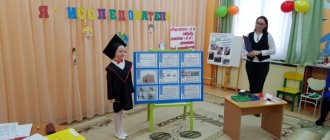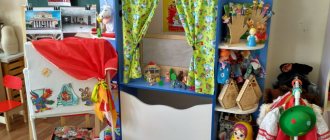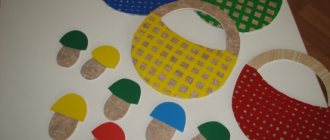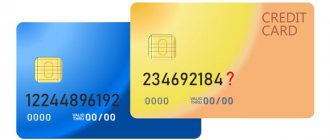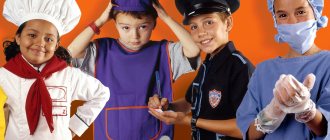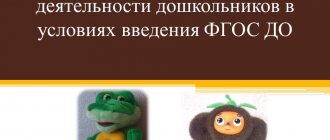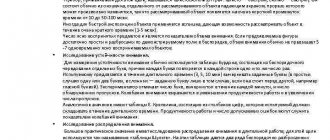Interesting facts about mathematics, presentation for an algebra lesson on the topic
Slide 1
History of mathematics. Interesting Facts
Slide 2
Funny Mathematics The German mathematician Kummer, an expert in the field of number theory, was in great trouble with arithmetic. One day, while teaching students, he needed to multiply 7 by 9. “Seven is nine...” Kummer began, “seven is nine, that will be...” “Sixty-one!” - suggested one of the students. Kummer wrote 61 on the board. “Sir,” said another student, “but it will be 66.” “Gentlemen,” Kummer replied, “choose one of two, or 61, or 66.”
Slide 3
Funny mathematics Everyone knows what the Nobel Prize is, to whom it is awarded and for what. But besides this, there is another unusual award. It is called the Ig Nobel Prize. Who can become a laureate? It is awarded at the same time as the Nobel Prize, but, unlike the famous prize, the Ig Nobel Prize is given for those ingenious projects that currently cannot be translated into reality. Or they will never do it because they are absurd. In 2009, this award was given to veterans who proved that a cow with a name produces more milk than one without a name.
Slide 4
Math around In the early 1980s, the fast food chain A&W launched a massive advertising campaign for its hamburger. Unlike a similar 1/4-pound sandwich from McDonald's, the A&W hamburger weighed 1/3-pound and cost slightly less, and customers said it tasted better. Despite all this, the campaign failed. A&W later conducted a study and discovered the reason: many customers did not understand the true meaning of fractional numbers. The offer seemed unprofitable to them, since 3 is less than 4.
Slide 5
Mathematics all around Did you know that fish can count to four? This interesting mathematical fact was confirmed by Italian scientists. Cristian Agrillo, an employee at the University of Padua who participated in the experiment, said: “We have obtained evidence that fish are endowed with rudimentary mathematical abilities.” It was previously known that fish can tell the difference between large and small schools of fish, but this experiment showed that fish can count how many fish are swimming around them. Monkeys, dolphins and some people with disabilities have similar mathematical abilities. 2 + 2 =4!!!
Slide 6
Geniuses of mathematics As it turns out, you can learn mathematics not only at school or college, but also at home, looking at wallpaper. In any case, this happened with Sofia Kovalevskaya. It so happened that as a child she looked in her room at sheets with lectures on integral and differential calculations. The whole point is that there simply wasn’t enough wallpaper for the children’s room. And thank God!
Slide 7
Thank you for your attention!
Presentation for parents “Playing math at home” presentation
Slide 1
“We play mathematics at home” Presentation for parents, teacher Klishina E. D. MBDOU “kindergarten No. 228 “Teremok” 9th group
Slide 2
Goal: to attract parents’ interest in entertaining material, to help them understand the significance of its use in a family setting. How to make math games interesting for your child: be sure to consider the age for which the task is intended. doesn’t want to - don’t insist, change tactics, offer a different type of game; especially with kids, use objects from life. For example, take vegetables and fruits for comparison, collect sticks of different lengths on the street and arrange them by length, from longest to shortest; don't focus on failures and don't do everything for him. the child himself must come to a logical conclusion; if something doesn’t work out, gently end the game and continue playing it after some time; Do not limit yourself to the word “Well done,” praise the child for his attempts and diligence, for his actions. But don’t overdo it, everything should be in moderation so that he wants to play not for the sake of praise, but for the sake of educational interest.
Slide 3
There are a huge number of types of mathematical games, so even a child who does not show interest in numbers and counting can find an activity that he will definitely enjoy. A walk is a great time to introduce your child to math in a fun and engaging way: “Let's take 10 big steps and 2 small ones?” “How about we do one jump and five steps?” “How many steps do you think it takes to get to that fire hydrant? Do I need to take more or fewer steps than you? How long?" “How many of your friends do you think we will meet today?” "Let's count the pigeons!" Games with construction kits and puzzles. Construction sets open up opportunities for the mental development of our children, namely their spatial thinking. These are: Wooden cubes. LEGO. Magnetic constructors. Tangram. Nikitin cubes.
Slide 4
The kitchen is a great place to learn math! When your children want to tinker in the kitchen, do not drive them out of there, but rather try to channel their energy in the right direction. “I need a medium bowl for this salad. Which one do you think is the right size?” “The recipe calls for three eggs. I put one. How much more do we need? “Can you measure out one cup of oatmeal for me?” “We need 1.5 cups of flour. I have 1 cup, how can I measure 1.5 cups using this cup?”
Slide 5
A walk is a great time to introduce your child to math in a fun and exciting way: - “Let's take 10 big steps and 2 small ones?” - “How about we do one jump and five steps?” - “How many steps do you think you need to take to get to that fire hydrant? Do I need to take more or fewer steps than you? How long?" - “How many of your friends do you think we will meet today?” " - "Let's count the pigeons!"
Slide 6
Incorporate math into your daily life. “I washed all my socks! Can you help me put them in pairs?” “Before we read the book, each of you must put 10 things back into place. One-two-three, let's go!” “Oh look! What a mess this drawer is! I need your help. Let’s put these things in the basket and sort them by color!”
Slide 7
Play math board games with the whole family.
Slide 10
Games for orientation in space (right and left)
Slide 11
Play is joy and pleasure for children. With its help, you can acquire new knowledge for later life.
Slide 12
Thank you for your attention!
Presentation “Preparing children for school in the middle group through FEMP”
Regina Dementieva
Presentation “Preparing children for school in the middle group through FEMP”
1 — «Preparing children for school in the middle group through FEMP».
Considering that gaming activity is the leading one for preschool children , I came to the conclusion that the maximum effect with FEMP can be achieved using didactic games, entertaining exercises, and tasks.
2- Teaching mathematics to preschool children is unthinkable without the use of entertaining games, tasks, and entertainment
• Currently, in connection with the improvement of the upbringing and education of children, a search is being made for new methods and means of teaching , and those that help identify the potential capabilities of each child.
3- Preschoolers have access to the simplest types of entertaining tasks. According to the developmental impact on children, the following main types can be distinguished:
• 1. Entertaining questions, tasks, jokes, promoting the development of logical thinking and intelligence, which are a method of activating mental activity.
4- 2. Problems – puzzles, the purpose of which is to create figures from the specified number of counting sticks:
3 equal squares of 10 sticks...
Problems on constructing simple figures
Problems for constructing complex figures
5-
3. Group of composing games
(modeling)
flat or three-dimensional images of objects.
Puzzle "Pythagoras"
,
"Tangram"
.
6- 4. Visual tasks are very diverse: from the simplest - on empty cells, continuation of a series, to more complex ones - finding patterns in rows of figures, signs of the difference between one group of figures and another .
7- In the process of solving these problems, children develop the ability to compare, generalize, prove, and draw conclusions
8- Developing elementary mathematical concepts children of a preschool institution , entertaining didactic material is used both in class and outside of them to organize independent activities.
9- The development of elementary mathematical concepts in children is not only knowledge of numbers, numbers, and problem solving, but also orientation in space, knowledge of geometric shapes, identification of three-dimensional and flat shapes.
10- We teach the child to distinguish and correctly name the basic geometric shapes (circle, square, triangle, rectangle, compare and distinguish objects by size and color.
11- We learn to determine the position of objects on a plane, know words denoting location and correctly understand their meanings: in front, behind, right, left, above, above, under, behind, in front.
In order for schooling to be successful , we (educators)
there are other tasks...
12- Developing fine motor skills of the child’s hand. This helps us with drawing, shading, coloring, stringing beads, buttons, modeling, blindly determining the shape of objects (first the simplest ones, then you can make them more complicated, playing with small objects (mosaics)
.
13- Using lotto and books, we teach children the names of: wild and domestic animals, birds, wild and garden flowers, trees, dishes, pieces of furniture, clothing, hats, types of shoes, toys, school supplies, body parts , names of cities , names of favorite fairy tales and their heroes.
14- Developing children's . We learn to retell fairy tales and cartoon content. We make up stories based on pictures. We monitor the child’s correct pronunciation and diction. We speak tongue twisters.
15- As a result of training, the child should learn to: think, reason, give answers meaningfully, logically justifying them - which means we have achieved the desired result.
